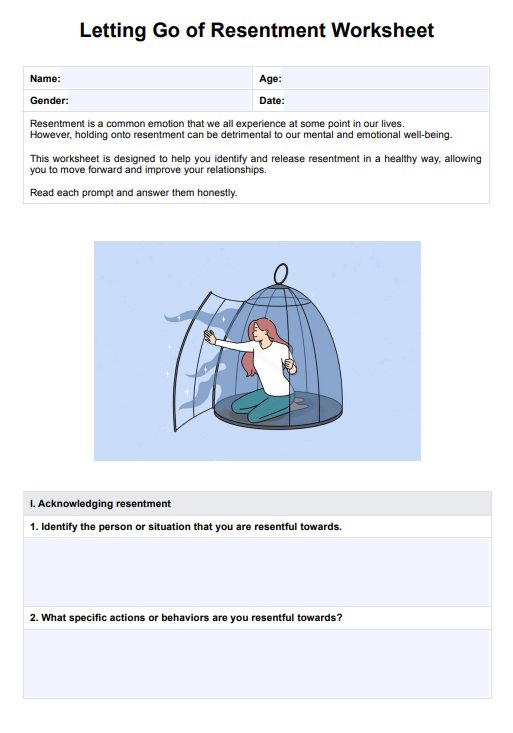The worksheet can help you identify and release resentment healthily, allowing you to progress and improve your relationships. By exploring forgiveness and self-care strategies, you can communicate your needs and boundaries clearly and prevent resentment from building up in the future.

Letting Go Of Resentment Worksheet
Help your clients release anger and resentment with our Letting Go of Resentment Worksheet. Add this to your toolkit for free.
Use Template
Letting Go Of Resentment Worksheet Template
Commonly asked questions
Forgiveness is a process that can take time, and it is okay to take it one step at a time. The worksheet provides tools to help you overcome barriers to forgiveness, such as fear of being hurt again and difficulty trusting the person who hurt you.
You can use the worksheet as often as you need to. It helps you explore feelings and identify healthy ways to move forward in your relationship.
EHR and practice management software
Get started for free
*No credit card required
Free
$0/usd
Unlimited clients
Telehealth
1GB of storage
Client portal text
Automated billing and online payments











